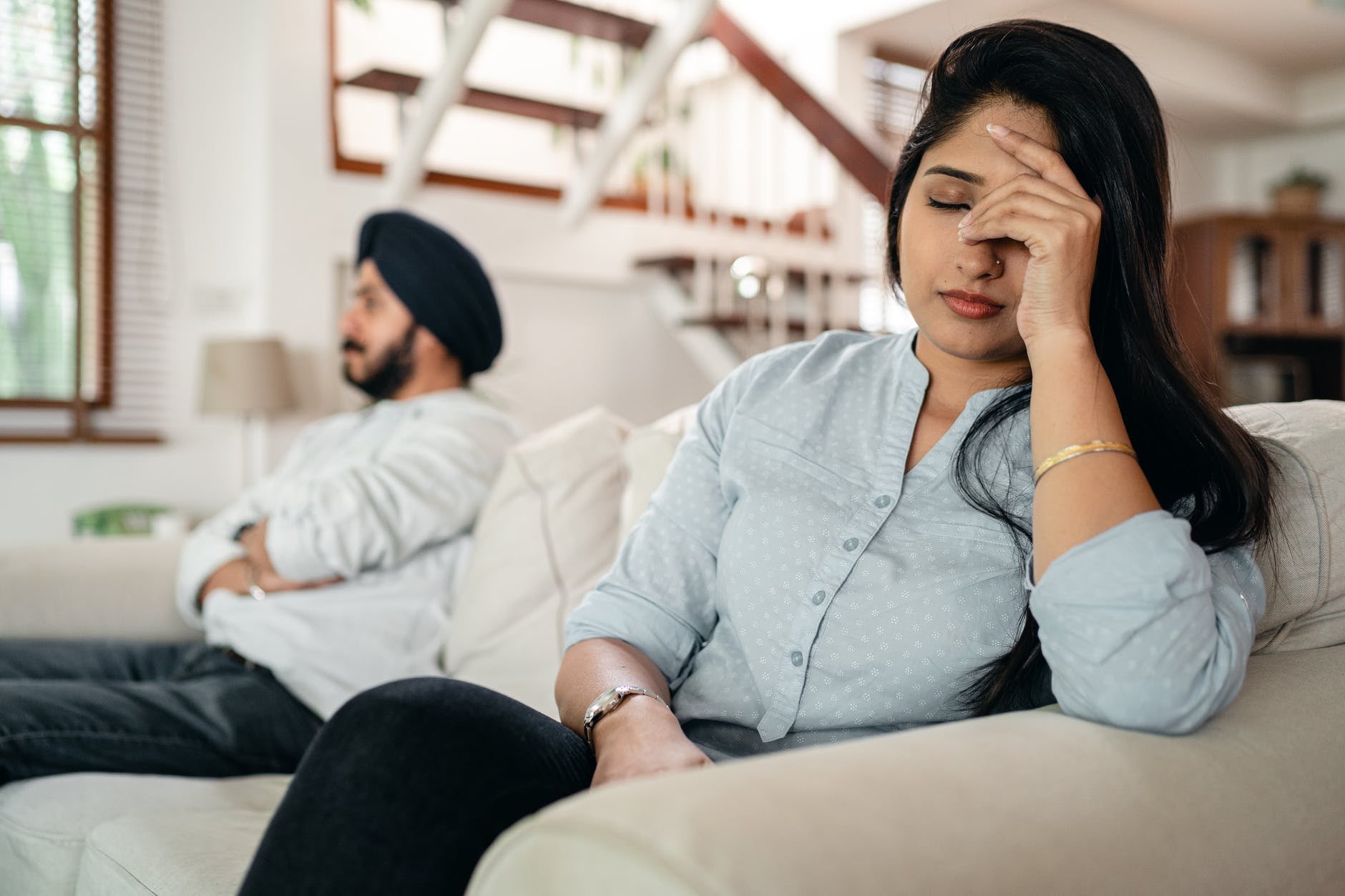Depression – Why is this something parents should be thinking about and talking about with their children and teens?

I know that I sound like a cliché broadcast reporter when I say that things have not been easy this past year. Broadly speaking, generically connecting to all people, it’s easy to simply say this. But, for some people, for some families, saying it has not been easy is a gross misrepresentation. It’s difficult for our society to acknowledge mental health – treating the challenges to mental health like they are a character flaw and something to overcome. People struggle with the idea that children and even teenagers could be depressed. What do they have to feel depressed about, some have said?
But now, with the pandemic, many people are starting to see how this could happen, through the isolation we’ve experienced while having a group of people we simply cannot seem to get away from, depression seems like a globally experienced phenomenon. But it’s nothing new.
I could list all of the reasons the media provides for increased levels of depression, loss of life, loss of jobs, social isolation, too much screen time. All of these things are important factors in the conversation and really fit that broader more generic discussion. I would like to take things a little deeper with children and teens and ask everyone to consider the role of family in depression. How have the experiences children and teens have had within their families provided a sense of hopelessness? A sense of helplessness? A sense of despair?
Considering how the pandemic has affected adults is a great starting point. Many adults are drinking more alcohol than they previously did, maybe they’ve had relapses or developed a full-blown addiction. Divorce and conflicts between parents have increased. There has been more and more need for conversations about safety and a legitimate anxiety about what is best for kids. Parents have been asked to multitask at a level that is impossible – maintaining dual attention on work and school for their children. The level of expectation or need within households has increased because we are always there – more laundry, more cleaning, more cooking, more issues with technology,more household repairs, higher bills and so on.
It’s easy as an adult to relate to these stressors, but I would really challenge you to think about what each of these things is like for children and teens. Imagine you could view the world through your child’s eyes. What would you see?

Increased Substance Use Through Their Eyes
I bet many of you have never noticed your child noticing you when you are drinking or using any other substance, but they are. Many children I have talked to throughout my practice as a therapist have shared what they notice. Theynotice how many beers/drinks you might have had. I don’t mean that they think to themselves, ‘wow that’s a lot.’ I mean that they know when you have had 2 and when you have had 8. They also notice the change in your personality, and many know what comes before the scary stuff or the embarrassing stuff – passing out, arguing, acting silly or strange. They might try to prevent these moments from happening or develop a sense of needing to take care of you. Now, as most of us adults know, children cannot actually take care of their parents. Although they will try, most ultimately end up feeling helpless and hopeless. Young children are very susceptible to blaming themselves and feeling like they failed, but I’ve talked to many teens and young adults who have felt this way too. When children and teens are faced with this situation regularly, they can develop symptoms of depression.
Increased Conflict Between Parents Through Their Eyes
Irritability is a symptom of depression in young children and teens. In adults it can also be a symptom of depression, but also a symptom of anxiety, trauma, grief and so much more. The pandemic has triggered an increase in the level of anxiety, trauma and grief many adults are experiencing. While life and it’s hustle and bustle of previous times might have provided a distraction, COVID has provided a great deal of time and space to feel all the feelings we’ve turned away from. As a result, irritability and conflict have increased. Many children and teens are experiencing arguing and fighting at a level they’ve never seen before – I’ve actually had children say in session, “they’ve never fought like that before.” They are also experiencing divorce. Children might experience symptoms of depression when they lose the sense of security that used to be present (i.e., the house they’ve lived in, the routines that used to be there, the toys that are now separated into two homes). Young children will typically understand this conflict through a lens that makes sense to them. What did they do to cause the divorce or the fighting? Older children and teens might feel pulled to pick a side or might join in the conflict as a way to deter parents from fighting with each other. This is not unusual. Children can become the buffer between parental conflict and bear the brunt of the emotional responsibility for the happiness and health of the family. This kind of responsibility is crushing and exhausting. It can also create a feeling of shame and decreased self-confidence. The hardest part is that this burden and responsibility, to mediate or create a distraction from the conflict between parents, is invisible and will often take a trained eye, a mental health professional, to see.
 Photo by Ketut Subiyanto on Pexels.com
Photo by Ketut Subiyanto on Pexels.com
Keeping Our Children Safe Through Their Eyes
It’s our responsibility as parents to make the decisions that keep our children safe. Prior to the pandemic these decisions might have been related to who to trust for childcare, whether or not sleep overs are a good idea, is it time to get a cell phone or a car, who is an acceptable friend to spend time with? It seems that, within hours, we lost the need to consider these challenging decisions and replaced it with “If I __________ will it literally make you sick or cause your death?” Parents have had to wonder about how isolated they should keep their children and if they are safe returning to school. We’ve also had to balance the physical dangers with the emotional costs. Many children are experiencing this as a tremendous loss, but also as a power struggle. They are expressing anger directly towards their parents because they understand that they don’t have any say in what is happening with their friends and classrooms. They have completely lost any sense of control in the world and they are seeking to feel control of something. When their attempts to have control over something fail, they experience defeat and a sense of ‘what’s the point?’ I’ve seen the motivation of children as young as 3 or 4 decrease tremendously. Young children are also saying things like “I wish I was dead” and experiencing trouble sleeping at an increased rate. Teens are experiencing suicidal thoughts and existential dread of the purpose of life when there doesn’t seem to be anything they can safely do without defying an adult or societal norm. It can be tempting to pretend this kind of thinking isn’t that big of a deal, but we should always take the time to ask why they feel this way and what we can do to help. If it’s too difficult to ask or to figure out, it might be time to consult a mental health professional.
Parent Multitasking and Increased Responsibility
Well, this one is so hard because there isn’t a parent out there who isn’t experiencing this. That means there isn’t a child or teen out there who isn’t experiencing it as well. It is a universal experience that is also completely individualized or specific to each family. Rather than thinking about the way children and teens negatively experience this, I’d like to think about it as the way we are all trying our best to get through something hard. This speaks to our resilience as humans and our motivation as parents to help our children get through this difficult time. If it weren’t for your desire and ability to try to work and be available for math questions and Zoom technical difficulties all at the same time, would children and teens feel even more loss? If you weren’t trying your best too maintain a home that is comfortable and safe would that sense of helplessness and loss of control be even greater? It’s important for us as adults and parents to recognize that the things we are doing are helping and many children and teens will come out of the other side of this pandemic without major mental health concerns. The increased time together and shift in focus from the outside world to the inside of our homes may actually benefit children and teens. Only time will tell. In the meantime, if you do feel like your child or teenager is experiencing depression, please take the time to talk to them or play with them. Be willing to hear the hard things and reach out for support and help if needed.
What depression might look like in children and teens
Feeling irritable or sad a lot
Not wanting to eat, losing or gaining weight, or not growing as expected
Having trouble falling asleep or too much sleep
Moving slowly or sluggish
Showing a loss of energy or excitement and enjoyment in activities
Making comments/playing with toys with themes of guilt, self-blame, loss of hope, death/dying, killing themselves
Have a hard time concentrating or making choices
*a diagnosis of depression should be made by a trained professional – please contact a mental health provider if you believe your child is depressed.

